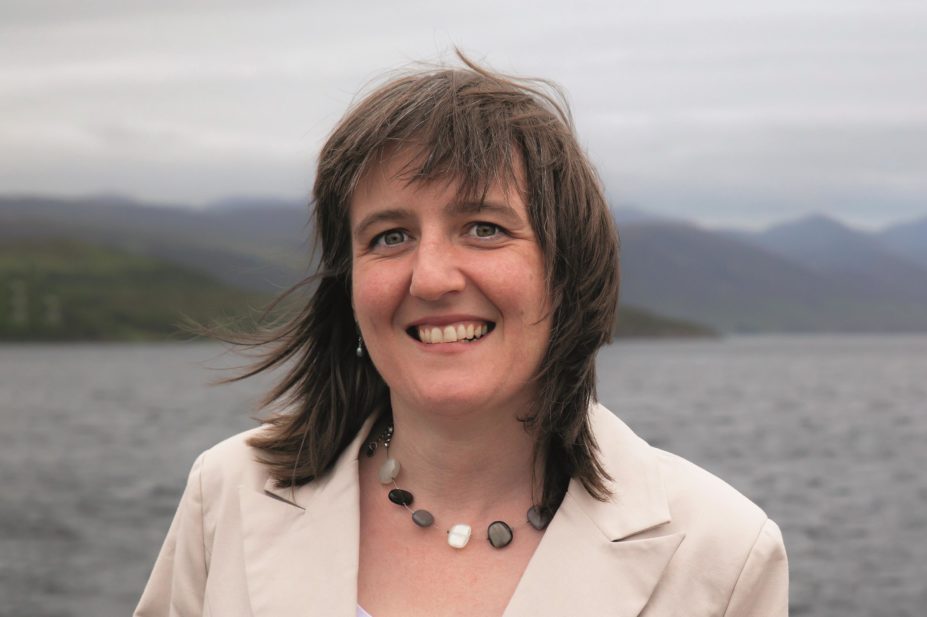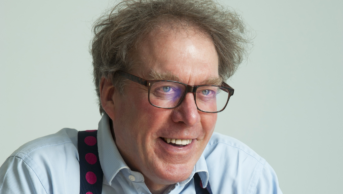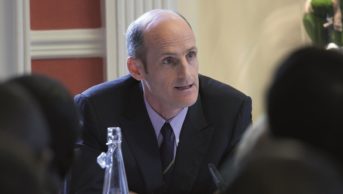
Courtesy of Maree Todd
Maree Todd MSP worked as a mental health pharmacist in Inverness for 20 years before being elected as a Scottish National Party Regional list MSP for the Highlands and Islands in May 2016. She is a long-term supporter of Scottish independence, and it was her involvement in “NHS for Yes” during the 2014 referendum, together with concerns about the impact of welfare changes on vulnerable patients with mental health problems, that led her to swap pharmacy for politics. However, her knowledge of the importance of pharmacists within multidisciplinary healthcare means she is well equipped to advocate for the profession inside the Scottish Parliament. Todd is currently a member of both the Health and Sport and the Finance and Constitution Committees of the Scottish Parliament.
Community pharmacy in Scotland has a great reputation nationally and internationally. What makes it so successful?
In Scotland, pharmacists are being encouraged into extended clinical roles. That’s partly because the NHS is different in Scotland compared with England. We started to go down the marketising route, but we stopped and reversed. The vision of a multidisciplinary team, including pharmacists, all working together to serve the interests of the patient is more achievable in Scotland because we’re not all competing. Cost is an issue in Scotland, just as it is in England, but culturally, we don’t believe that letting the market drive costs down is the way to deliver a quality service.
It just wouldn’t be politically acceptable up here in Scotland to close all those high street community pharmacies
What are your views about the continued disinvestment in community pharmacy in England?
I went to the debate on the community pharmacy contract at Westminster in 2015, and it was clear that England and Scotland are different countries. It wouldn’t be politically acceptable in Scotland to close all those high street community pharmacies. People would see that a highly valued service was being lost.
Our profession probably hasn’t been vocal enough about the impact of the closures — everyone heard about changes to the junior doctors’ and midwives’ contracts, but there’s been little in the press about changes to pharmacists’ contracts.
What are your current priorities for health in Scotland?
The biggest priority is to achieve a big shift in services from acute hospitals to primary care in response to the big challenge of the ageing demographic. I certainly hope that, within five to 10 years, we’ll see more patients being treated at home or in the community, with a whole variety of health professionals involved.
We must also tackle the terrible health inequalities which we have in Scotland. Health inequality is related to wealth inequality and there will need to be a number of different government bodies involved in tackling that. The Scottish government has made a real commitment to tackle the attainment gap and focus on early years in an attempt to tackle the later problem of health inequality.
As a mental health pharmacist, I’m pleased that mental health is a priority for the government over the next few years. We’re about to bring out a new mental health strategy and extra money is being provided. So the idea that mental health will have parity with physical health is a big step forward.
We also want to see better palliative care across Scotland — for all conditions, not just for cancer
Which recommendations from Prescription for Excellence, the vision and action plan for the future of NHS Pharmaceutical Care in Scotland, published in 2013, are high on the “next to do” list for the Scottish government?
There has been criticism that these recommendations were too broad, but they have enabled people to do different things, depending on local needs. The recommendation for person-centred care is driving the move towards primary care and can ensure that patients get care as close to home as possible instead of — as happens in my constituency — having to drive hundreds of miles to the nearest hospital. We are starting to see better use of technology, with consultants doing clinics by video link for patients in remote areas.
Unscheduled and emergency care is definitely a priority. There’s been a lot of work on speeding people’s discharge but we now need a big effort to reduce unscheduled admissions and enable patients to stay at home as much as possible. We also want to see better palliative care across Scotland — for all conditions, not just for cancer — so that patients at the end of life can die at home if they wish, instead of in hospital.
England is the only country left in the UK without a national minor ailments scheme. What could you share from the Scottish scheme to convince those at Whitehall that community pharmacies in England deserve the same investment?
It’s much more efficient use of resources if patients go to their pharmacist for treatment of minor ailments than their GP or A&E department. Pharmacists are more accessible, so patients can be treated quickly and at times to suit them.
We are discussing how the minor ailments scheme should be extended
In Scotland, the minor ailments scheme has been so successful that we are discussing how it should be extended to more patients and more clinical conditions. No one in Scotland pays for prescriptions but the scheme is currently open only to patients who would not have had to pay if charges were still made. It’s now being suggested that the scheme should be open to everyone. If we want to embed it in our culture that pharmacists are the first stop for patients with minor illness, then making the scheme universal is the way forward.
The Royal Pharmaceutical Society in Scotland and the Royal College of GPs Scotland have released a joint policy statement calling for more general practice-based pharmacists (on 30 September 2016). How do you propose we achieve this?
Today, there are probably over 1,000 pharmacists who are qualified as prescribers but there are barriers to prescribing in a shop environment. It’s much easier for a pharmacist to prescribe within a GP practice as part of the multidisciplinary team. The Scottish government has released funding for up to 140 places for pharmacists in GP practices and, in Inverness, where I come from, pharmacists are already working in practices. They are running asthma and other clinics where they are ideally suited to helping with side effects and ensuring that patients get the most out of their treatment.
What’s driving the move towards more practice-based pharmacists is the current difficulty in GP recruitment. This means that there is going to have to be a change in the way that primary care is delivered, with a shift away from GP delivery of care towards delivery by the whole multidisciplinary team. It won’t be a case of pharmacists and nurses filling gaps and being a ‘lower quality doctor’. It’s a case of pharmacists enhancing the quality of care and ensuring that patients receive evidence-based treatment so they get the drugs they need and unnecessary drugs are stopped.
I still feel we’re the profession that’s hidden in full view
What can other countries learn from the way Scotland approaches pharmaceutical care?
I don’t feel that Scotland is that far ahead, and I would be hard pressed to say “look at us, we’re doing great things”. Pharmacists are the third largest workforce in the NHS, but I still feel we’re the profession that’s hidden in full view. People know that we dispense prescriptions but there’s never been a good understanding of the pharmaceutical care aspect of the job, and I don’t feel that we’re contributing at the level we could.
Do you plan to continue practising as a pharmacist?
I’ve struggled to see how I can do that. I want to remain on the pharmacist register, and being on the Health and Sport Committee and a number of cross-party groups will contribute to my continuing professional development. I did look into locum cover at the hospital where I used to work, but I feel there would be a conflict of interest being both the MSP and the psychiatric pharmacist for patients, many of whom have housing and welfare issues. It’s a long time since I was a community pharmacist and it’s now very different and specialised.
What aspects of your pharmacy training have prepared you for a role in politics?
It’s a great thing to have more people with science degrees in politics because we look at things differently. We analyse and look at the evidence. For example, I was invited to discussions about genetically modified foods when there was a case being made to reverse the current ban in Scotland. I was able to debunk some of the science in a way that someone who hasn’t learned any science would find difficult. There are also discussions going on about underground coal gasification and fracking, and it helps to be able to understand the science.
Being a health professional is also useful because you have ingrained ethical behaviour which is useful for a politician. I’ve been trained to think of the patient constantly and I’m now constantly thinking about my constituents. Not in a paternalistic way, but in a way aimed at helping people to make informed decisions about the country they want to live in and what’s important to them.


